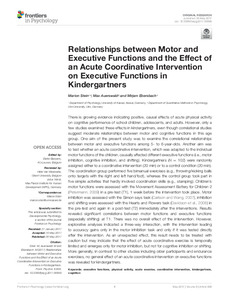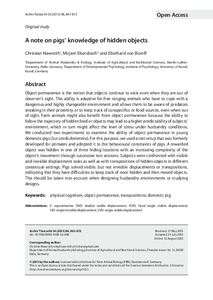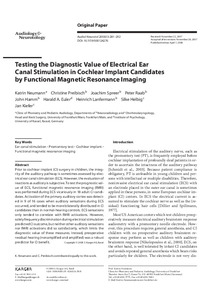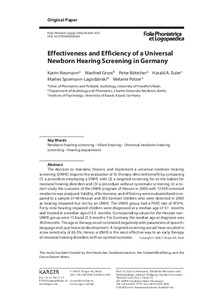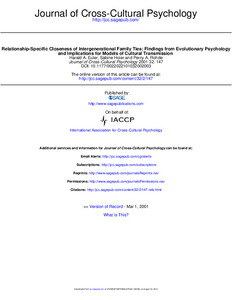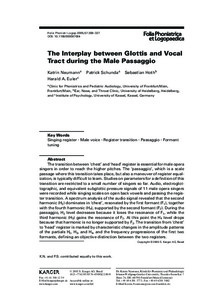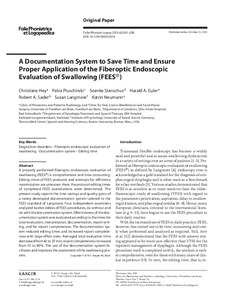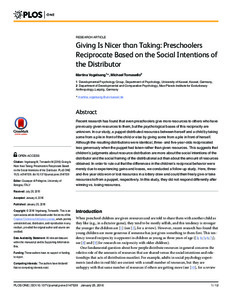Suche
Anzeige der Dokumente 11-20 von 27
Aufsatz
 Relationships between Motor and Executive Functions and the Effect of an Acute Coordinative Intervention on Executive Functions in Kindergartners
Relationships between Motor and Executive Functions and the Effect of an Acute Coordinative Intervention on Executive Functions in Kindergartners
(2017-05-30)
There is growing evidence indicating positive, causal effects of acute physical activity on cognitive performance of school children, adolescents, and adults. However, only a few studies examined these effects in kindergartners, even though correlational studies suggest moderate relationships between motor and cognitive functions in this age group. One aim of the present study was to examine the correlational relationships between motor and executive functions among 5- to 6-year-olds. Another aim was to test whether ...
Aufsatz

 A note on pigs’ knowledge of hidden objects
A note on pigs’ knowledge of hidden objects
(2013-08-12)
Object permanence is the notion that objects continue to exist even when they are out of observer´s sight. This ability is adaptive not only for free ranging animals who have to cope with a dangerous and highly changeable environment, allowing them to be aware of predators sneaking in their proximity or to keep track of conspecifics or food sources, even when out of sight. Farm animals, too, might profit from object permanence as the ability to follow the trajectory of hidden food or objects may lead to a higher ...
Aufsatz

 Distributing mathematical practice of third and seventh graders: Applicability of the spacing effect in the classroom
Distributing mathematical practice of third and seventh graders: Applicability of the spacing effect in the classroom
(2018-10-23)
We examined the effect of distributed practice on the mathematical performance of third and seventh graders (N = 213) in school. Students first received an introduction to a mathematical topic, derived from their curriculum. Thereafter, they practiced in one of two conditions. In the massed condition, they worked on three practice sets in 1 day. In the distributed condition, they worked on one practice set per day for 3 consecutive days. Bayesian analyses of the performance in two follow‐up tests 1 and 6 weeks after ...
Aufsatz

 Mental rotation and the motor system: Embodiment head over heels
Mental rotation and the motor system: Embodiment head over heels
(2013-12-13)
We examined whether body parts attached to abstract stimuli automatically force embodiment in a mental rotation task. In Experiment 1, standard cube combinations reflecting a human pose were added with (1) body parts on anatomically possible locations, (2) body parts on anatomically impossible locations, (3) colored end cubes, and (4) simple end cubes. Participants (N = 30) had to decide whether two simultaneously presented stimuli, rotated in the picture plane, were identical or not. They were fastest and made less ...
Aufsatz
 Giving Is Nicer than Taking: Preschoolers Reciprocate Based on the Social Intentions of the Distributor
Giving Is Nicer than Taking: Preschoolers Reciprocate Based on the Social Intentions of the Distributor
(2016-01-25)
Recent research has found that even preschoolers give more resources to others who have previously given resources to them, but the psychological bases of this reciprocity are unknown. In our study, a puppet distributed resources between herself and a child by taking some from a pile in front of the child or else by giving some from a pile in front of herself. Although the resulting distributions were identical, three- and five-year-olds reciprocated less generously when the puppet had taken rather than given resources. ...

